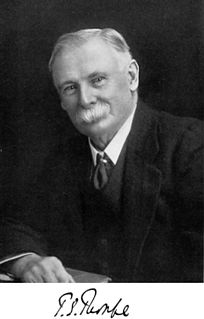A Quote by Ludovico Ariosto
Such fire was not by water to be drowned, nor he his nature changed by changing ground.
Related Quotes
Botha swimmer and a drowned man are in the water; the latter is borne by the water and controlled by it, while the swimmer is borne along by his own power and of his own volition. Every movement made by the drowned man - indeed, every act and word that issue from him - comes from the water, not from him... The saints are like this. They have died before death.
Military tactics are like unto water; for water in its natural course runs away from high places and hastens downwards... Water shapes its course according to the nature of the ground over which it flows; the soldier works out his victory in relation to the foe whom he is facing. Therefore, just as water retains no constant shape, so in warfare there are no constant conditions. He who can modify his tactics in relation to his opponent and thereby succeed in winning, may be called a heaven-born captain.
Into this wild Abyss/ The womb of Nature, and perhaps her grave--/ Of neither sea, nor shore, nor air, nor fire,/ But all these in their pregnant causes mixed/ Confusedly, and which thus must ever fight,/ Unless the Almighty Maker them ordain/ His dark materials to create more worlds,--/ Into this wild Abyss the wary Fiend/ Stood on the brink of Hell and looked a while,/ Pondering his voyage; for no narrow frith/ He had to cross.
It is true that water will flow indifferently to east and west, but will it flow equally well up and down? Human nature is disposed toward goodness, just as water tends to flow downwards. There is no water but flows downwards, and no man but shows his tendency to be good. Now, by striking water hard, you may splash it higher than your forehead, and by damming it, you may make it go uphill. But, is that the nature of water? It is external force that causes it to do so. Likewise, if a man is made to do what is not good, his nature is being similarly forced.
[Henry Cavendish] fixed the weight of the earth; he established the proportions of the constituents of the air; he occupied himself with the quantitative study of the laws of heat; and lastly, he demonstrated the nature of water and determined its volumetric composition. Earth, air, fire, and water-each and all came within the range of his observations.
Cry, the beloved country, for the unborn child that's the inheritor of our fear. Let him not love the earth too deeply. Let him not laugh too gladly when the water runs through his fingers, nor stand too silent when the setting sun makes red the veld with fire. Let him not be too moved when the birds of his land are singing. Nor give too much of his heart to a mountain or a valley. For fear will rob him if he gives too much.



































